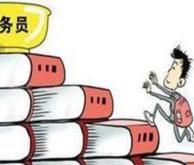The Growing Phenomenon of Civil Service Exam Withdrawal in China
In China’s 2025 National Civil Service Exam, out of 3.416 million qualified applicants, only 2.586 million actually took the test, with over 430,000 failing to confirm registration and 396,000 absent on exam day, revealing shifting attitudes toward civil service careers.

The recent civil service examination in China has unveiled an intriguing trend that reflects deeper changes in career aspirations and social values among young professionals. The 2025 National Civil Service Examination saw a significant number of candidates withdrawing despite initial registration, prompting analysis of this growing phenomenon.
The examination statistics paint a telling picture. While 3.416 million candidates qualified for the exam, only 2.982 million confirmed their registration, and ultimately just 2.586 million participated. This represents an attendance rate of 86.7%, meaning nearly 400,000 confirmed registrants chose not to appear on exam day.
Several key factors contribute to this withdrawal pattern. First, many candidates register without adequate preparation or genuine intent, often influenced by peer pressure or family expectations. The civil service position, traditionally viewed as an “iron rice bowl” in Chinese society, no longer holds the same allure for young professionals who prioritize work-life balance and personal fulfillment.
The demanding preparation process plays a crucial role in deterring candidates. While the exam content primarily covers high school-level language comprehension and mathematics, the intense competition requires dedicated study. Many working professionals struggle to balance exam preparation with their current jobs, leading to last-minute withdrawals.
Economic considerations also influence participation rates. While registration fees have been eliminated, candidates must often travel to examination centers in different cities, requiring significant expenditure on transportation and accommodation. For fresh graduates or those between jobs, these costs can be prohibitive.
The competitive reality of the examination further impacts participation. With an average acceptance rate of 1:65, many candidates realize their slim chances of success and opt out. This particularly affects those who initially registered without serious career planning or proper understanding of the examination’s demands.
Importantly, this withdrawal phenomenon reflects a broader shift in professional attitudes. Modern job seekers increasingly value workplace flexibility, personal development, and diverse career paths over traditional civil service stability. Private sector opportunities, particularly in large corporations, often provide comparable benefits with greater potential for advancement.
The psychological aspect cannot be overlooked. Many candidates experience significant anxiety and self-doubt during preparation, leading to withdrawal as a form of self-preservation. This is especially true for employed professionals who question whether the potential benefits outweigh the immediate costs to their current career trajectory.
The high withdrawal rate also suggests a more pragmatic approach to career development among young Chinese professionals. Rather than viewing the civil service examination as a make-or-break opportunity, many now see it as just one of many career options, leading to more selective participation.
For those serious about pursuing civil service careers, these withdrawals actually represent reduced competition. However, this should not be misinterpreted as an easier path to success, as the remaining candidates tend to be more committed and better prepared.
This evolving attitude toward civil service careers marks a significant shift in China’s professional landscape. Young people are increasingly making career choices based on personal fit and professional satisfaction rather than traditional prestige or stability, suggesting a maturing perspective on career development.